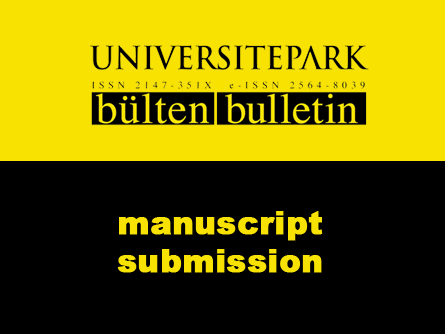An Integrated Approach to Islamic Microfinance for Poverty Alleviation in Bangladesh
pp. 32-44 | Published Online: May 2017 | DOI: 10.22521/unibulletin.2017.61.3
Abdullahil Mamun, Mohammad Rahim Uddin, Mohammad Tauhidul Islam
![]() Full text PDF |
3345 |
2291
Full text PDF |
3345 |
2291
Abstract
The study critically examines the state of the Islamic Microfinance sector of Bangladesh to find its role in addressing poverty. The study constitutes linkage between Islamic Microfinance and Poverty Alleviation. It is a desk-based and library-oriented research relying on secondary data, structured on research objectives. Islamic microfinance organizations have not yet developed to the expected level in Bangladesh and thus Muslim citizens are compelled to borrow from conventional interest-based lending sources, but many underprivileged and small-scale entrepreneurs feel unable to access funding due to their religious ideology. Islamic concern for the disadvantaged makes it crucial to ensure Islamic microfinance services include their participation in the production process. Due to a lack of Islamic microfinance institutions in Bangladesh, the integration of Islamic microfinance with NGOs, NPOs (non-profit organizations), Zakah, Waqf, and capacity-building institutions to facilitate small-scale financial services to the poor can internalize them into the market mechanism and thereby work as a powerful tool for poverty eradication. This study proposes a new framework that directly addresses Islamic Microfinance and Poverty alleviation in Bangladesh.
Keywords: Microfinance, NGOs, NPOs, Zakah, Waqf, Poverty Alleviation
ReferencesAhmed, H. (2002). Financing microenterprises: An analytical study of Islamic microfinance institutions. Islamic Economic Studies, 9(2), 27-64.
Ahmed, H. (2008). Zakah, Macroeconomic Policies, and Poverty Alleviation: Lessons from Simulations on Bangladesh. Journal of Islamic Economics, Banking and Finance, 4(2), 81-105.
Dhaoui, E. (2015). The role of Islamic Microfinance in Poverty Alleviation: Lessons from Bangladesh Experience. Tunis, Tunisia: Tunisian Institute of Competitiveness and Quantitative Studies.
Durrani, M. K. K., Usman, A., Malik, M. I., & Shafiq, A. (2011). Role of micro finance in reducing poverty: A look at social and economic factors. International Journal of Business and Social Science, 2(21), 138-144.
Honohon, P. (2007, March). Cross-Country Variations in Household Access to Financial Services. Paper presented at the World Bank Conference on Access to Finance, Washington, D.C.
Kahf, M. (1989). Zakat: Unresolved issues in the contemporary fiqh. IIUM Journal of Economics and Management, 2(1), 1-22.
Karim, N., Tarazi, M., & Reille, X. (2008). Islamic microfinance: An emerging market niche. CGAP, Focus Note, 49.
Khalily, M. B., Imam, M. O., & Khan, S. A. (2000). Efficiency and sustainability of formal and quasi-formal microfinance programmes—an analysis of Grameen Bank and ASA. The Bangladesh Development Studies, 26(2-3), 103-146.
Mahmood, H. Z., Fatima, M., Khan, M., & Qamar, M. A. (2015). Islamic Microfinance and Poverty Alleviation: An Empirical Ascertainment from Pakistan. Journal of Islamic Economics, Banking and Finance, 11(2), 85-105.
Mamun, A. (2013, December). Social Business Enterprises: A Prime Lives Improving Apparatus of Ultra Poor. Paper presented at the International Conference on Business Innovations, Entrepreneurship and Engineering 2013 (ICOBIEE 2013), Penang, Malaysia.
Matin, I., Sulaiman, M., & Rabbani, M. (2008). Crafting a graduation pathway for the ultra poor: Lessons and evidence from a BRAC programme. RED Working Paper, BRAC.
Meisami, H., & Hasanzadeh, A. (2012). Using Wagf as an Islamic economics institution to present a model of Islamic microcredit compatible with Shia Figh. African Journal of Business Management, 6(37), 10109-10116.
Microcredit Regulatory Authority [MRA]). (2014). Microcredit in Bangladesh. Retrieved from http://www.mra.gov.bd/.
Microcredit Regulatory Authority [MRA]. (2015). Bangladesh 2015 Annual Report. Retrieved from http://www.mra.gov.bd/.
Ministry of Finance. (2015). Bangladesh Economic Review, 2015. Ministry of Finance, Bangladesh.
Morduch, J., & Haley, B. (2002). Analysis of the effects of microfinance on poverty reduction. New York: NYU Wagner Working Paper, 1014.
Odumosu, O. F. (1999). Social costs of poverty: The case of crime in Nigeria. Journal of Social Development in Africa, 14(2), 71-85.
UNIBULLETIN News!
► New issue coming soon! (Volume 13 Issue 1, 2024)
► Call for Papers
UNIBULLETIN is calling for submissions. Authors are invited to submit papers from the all fields of the Education (General) and Social Sciences (General) in the international context. All submissions should be presented only in English.
